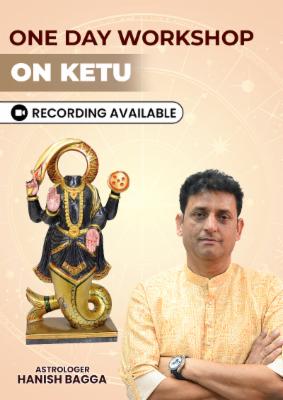- The Elephant-Headed Deity's Supreme Position
- The Mythological Origins
- Symbolic Significance of Lord Ganesha
- Why Beginning with Ganesha is Essential
- The Universal Appeal of Ganesha Worship
- Spiritual Practices Associated with Ganesha Worship
- The Impact of Ganesha Worship on Daily Life
- Common Misconceptions About Ganesha Worship
- Integrating Ganesha Worship in Contemporary Life
- Conclusion
The Elephant-Headed Deity’s Supreme Position
In Hindu culture and traditions, Lord Ganesha holds a unique and prestigious position. He is revered as the remover of obstacles and is traditionally worshipped before beginning any new venture, ritual, or ceremony. This age-old practice isn’t merely a custom but carries deep spiritual and philosophical significance that has been passed down through generations.
The Mythological Origins
The Story of Ganesha’s Birth
According to Hindu mythology, Lord Ganesha was created by Goddess Parvati from turmeric paste to guard her private chambers while she bathed. When Lord Shiva attempted to enter, the young Ganesha, unaware of his identity, refused him entry. This led to a confrontation where Lord Shiva, in his anger, severed Ganesha’s head. Upon learning that the boy was Parvati’s son, Shiva replaced his head with that of an elephant, bringing him back to life.
The Blessing of First Worship
Following this incident, Lord Shiva not only restored Ganesha to life but also blessed him with a divine boon – that he would be worshipped first before all other deities. This blessing made Lord Ganesha the ‘Pratham Pujya’ (first to be worshipped) in Hindu tradition.
Symbolic Significance of Lord Ganesha
The Physical Attributes
- The large head symbolizes wisdom, knowledge, and intellectual capabilities
- The big ears represent the importance of listening and learning
- The small eyes signify concentration and focus
- The trunk represents adaptability and discrimination between good and evil
- The large belly symbolizes the ability to digest all of life’s experiences, both good and bad
The Four Arms and Their Meanings
Lord Ganesha’s four arms typically hold different items, each carrying profound symbolism:
- The axe represents the cutting of worldly attachments
- The lotus flower symbolizes spiritual enlightenment
- The modak (sweet) represents the rewards of spiritual pursuit
- The fourth hand in blessing posture signifies protection and grace
Why Beginning with Ganesha is Essential
Removing Obstacles
The primary reason for worshipping Lord Ganesha first is his role as ‘Vighnaharta’ – the remover of obstacles. By seeking his blessings at the start of any endeavor, devotees believe they can overcome potential challenges and hindrances more effectively.
Scientific and Philosophical Perspective
From a more philosophical standpoint, beginning with Ganesha worship represents:
- Mental preparation and focus before starting any task
- Setting positive intentions
- Acknowledging potential obstacles and preparing to face them
- Creating an auspicious environment for success
The Universal Appeal of Ganesha Worship
Cross-Cultural Recognition
Lord Ganesha’s popularity extends beyond Hindu traditions. His worship has found acceptance in various cultures and religions across Asia. This universal appeal stems from the fundamental human desire to overcome obstacles and achieve success in their endeavors.
Modern-Day Relevance
In today’s fast-paced world, the practice of worshipping Ganesha holds special significance:
- It provides a moment of mindfulness before starting important tasks
- Helps in developing patience and persistence
- Encourages wisdom in decision-making
- Promotes the importance of removing mental blocks and negative thoughts
Spiritual Practices Associated with Ganesha Worship
Traditional Rituals
The worship of Lord Ganesha involves several specific practices:
- Offering red flowers and durva grass
- Lighting lamps with ghee
- Chanting specific mantras
- Offering modaks (his favorite sweet)
- Applying red tilak or sindoor
Modern Adaptations
Contemporary devotees have adapted these practices to fit modern lifestyles while maintaining their essential spiritual significance:
- Brief morning prayers before starting the day
- Keeping Ganesha images or idols in workspaces
- Mental invocation before important meetings or tasks
- Simplified puja rituals for busy schedules
The Impact of Ganesha Worship on Daily Life
Personal Development
Regular worship of Lord Ganesha can contribute to personal growth in several ways:
- Enhanced problem-solving abilities
- Better emotional regulation
- Improved decision-making skills
- Greater resilience in facing challenges
- Increased awareness and mindfulness
Professional Benefits
In the professional sphere, the practice of seeking Ganesha’s blessings can lead to:
- More focused approach to work
- Better handling of workplace challenges
- Improved leadership qualities
- Enhanced creativity and innovation
- Greater success in new ventures
Common Misconceptions About Ganesha Worship
Clarifying Popular Myths
- The practice isn’t about blind faith but about cultivating positive qualities
- It’s not limited to specific occasions or ceremonies
- The benefits aren’t instant but develop through consistent practice
- The worship isn’t restricted to any particular community or religion
Integrating Ganesha Worship in Contemporary Life
Practical Applications
- Start your day with a simple prayer or meditation focusing on removing obstacles
- Keep a small Ganesha idol or image in your workspace
- Practice mindfulness while performing Ganesha-related rituals
- Share the values and teachings associated with Ganesha with younger generations
Conclusion
The tradition of worshipping Lord Ganesha first isn’t merely a religious practice but a profound spiritual principle that has stood the test of time. It represents the importance of beginning any endeavor with the right mindset, awareness of potential challenges, and the wisdom to overcome them. Whether viewed through a religious, philosophical, or practical lens, the custom of seeking Ganesha’s blessings first continues to offer valuable guidance for navigating life’s journey successfully.
“In Lord Ganesha, we find not just a deity to worship, but a guide for living a mindful and successful life. His presence at the beginning of our endeavors reminds us to approach our goals with wisdom, patience, and determination.”
This ancient practice remains relevant in modern times, offering a framework for personal growth, professional success, and spiritual development. By understanding and incorporating these principles, we can better appreciate why Lord Ganesha continues to be worshipped first and how this tradition enriches our lives in meaningful ways.





















